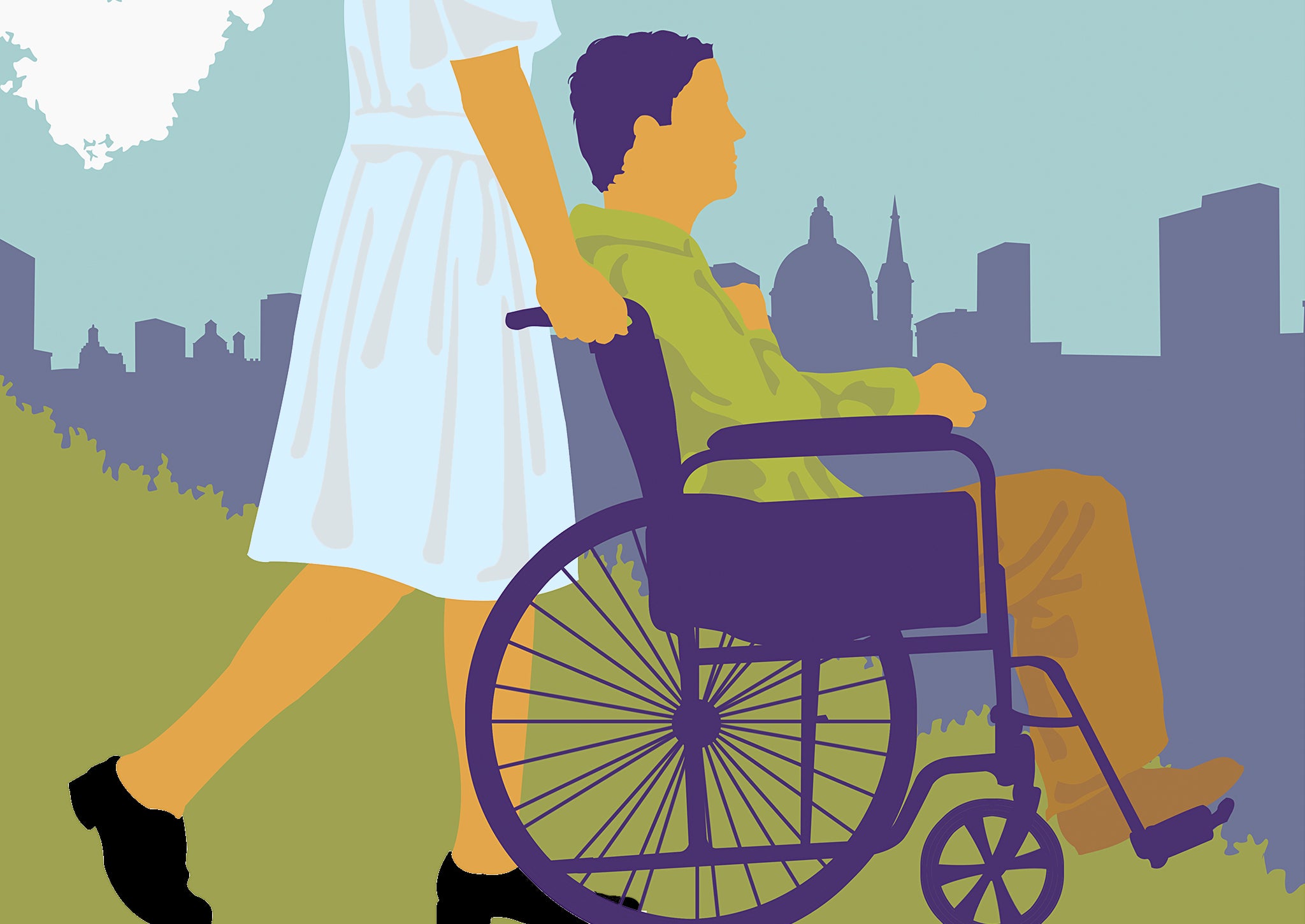What I wish someone had told me when I became a carer
My husband was involved in a motorbike accident when he was 26 and I've cared for him for the last 24 years

The suddenness of my husband's accident and becoming his carer as well as his wife was tough. Along the way I’ve learned some valuable lessons to share with other carers:
Be prepared to fight for your relationship
The relationship with the person you care for can be fraught. Jon and I have been married for 24 years now, but that doesn’t mean it’s plain sailing. We’ve had to adjust to big change. He has had to learn what he can and can’t do for himself, and both of us have had to focus on how to make our marriage work. You always have to keep in mind you aren’t fighting each other, but the difficulties you come across.
Don’t let people tell you what is expected of you
There are so many misconceptions around being a carer and what it means – I certainly don’t think I’m a martyr! I’m Jon’s wife, a mother and a music teacher, I also happen to be a full-time carer. Let people see all the things you are.
Be ready to challenge perceptions of disability
As Jon is in a wheelchair, we unfortunately still find ourselves facing the "does he take sugar?" attitude. Together we’ve come up with a strategy for dealing with this kind of behaviour. If this is something you might come across, find an approach that works for you both.
Know there are places you can turn to for support
I’ve found the support of people who know and have experience of what I’m going through helpful. Try to find out about any groups or organisations in your area that could support you. For instance the Spinal Injuries Association has helped me find out about spinal injury rehabilitation as well as providing emotional support.
Listen to the difficult pieces of advice
Some of the advice Jon and I have taken has not been easy to hear. For instance, we found that counselling enabled us to process the fact that Jon was no longer going to be the same person he was before his accident. This was a loss to us both. As a carer, there will be difficult steps to take and changes to process, but I know they have helped me.
Find your way to keep going
I’m not the first carer to stand up and say how hard it is, but don’t underestimate your ability to keep going. I find that thinking of each day as "untrodden snow", a fresh and new day, is a big help. Also – never underestimate the importance of your sense of humour.
You can – and should – have your own life
I don’t think carers can hear it enough – remember to put yourself first and get a break when you can. Taking time off can be complicated, but you should never think you don’t deserve or need it. Carers need to have their own lives, and consider their own health as well.
National Accident Helpline is launching the British Caregiver Award to highlight the need for the UK’s unpaid carers to get a break. The Award will enable a carer and the person they look after to take a holiday together with national charity Revitalise. Enter or nominate a carer here: http://www.national-accident-helpline.co.uk/british-caregiver-award
Join our commenting forum
Join thought-provoking conversations, follow other Independent readers and see their replies
Comments
Bookmark popover
Removed from bookmarks